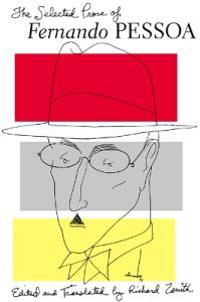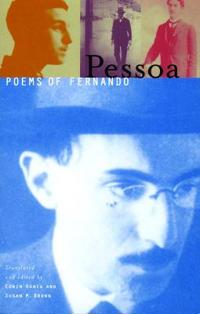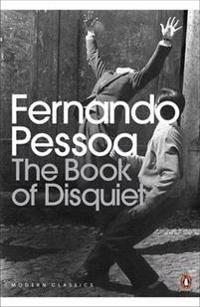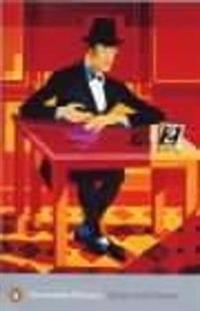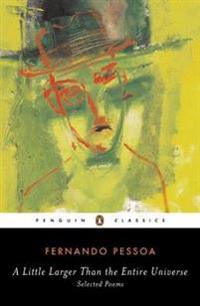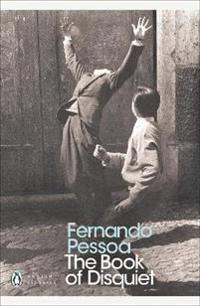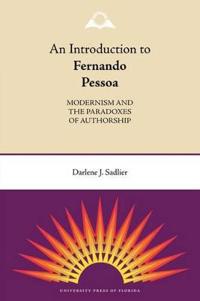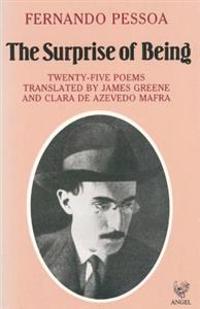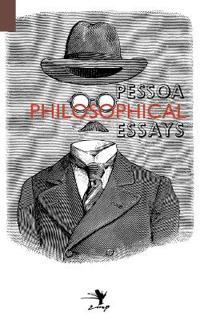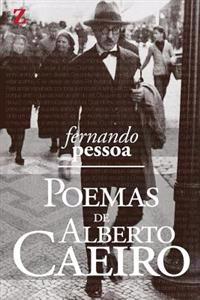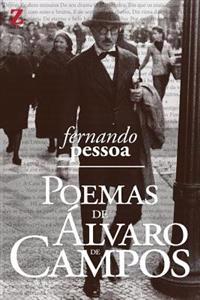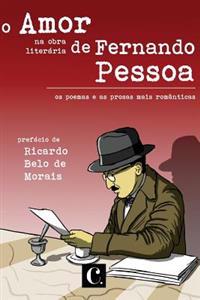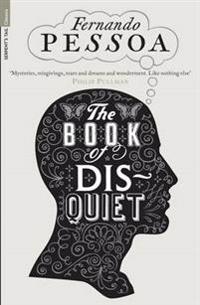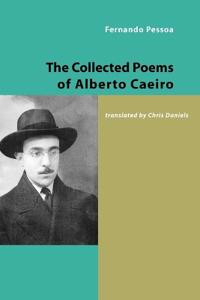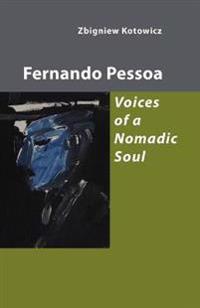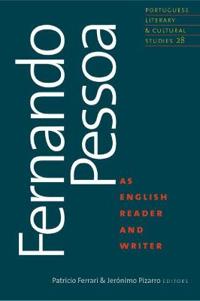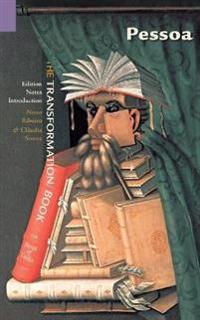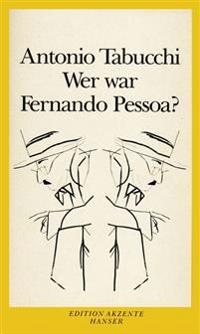Fernando Pessoa and Co: Selected Poems (Häftad)
avFernando Pessoa
ISBN: 9780802136275 - UTGIVEN: 199904Fernando Pessoa (1888-1935) -- a poet who lived most of his life in Lisbon, Portugal, and who died in obscurity there -- has in recent years gained international recognition as one of the greatest writers of the twentieth century. Now Richard Zenith has collected in a single volume all the major poe[...]
The Selected Prose of Fernando Pessoa (Häftad)
avFernando Pessoa
ISBN: 9780802139146 - UTGIVEN: 200207The Washington Post Book World has written that Fernando Pessoa was "Portugal's greatest writer of the twentieth century [though] some critics would even leave off that last qualifying phrase" and "one of the most appealing European modernists, equal in command and range to his contemporaries Rilke [...]
Poems of Fernando Pessoa (Pocket)
avFernando Pessoa, Edwin Honig, Susan M. Brown
ISBN: 9780872863422 - UTGIVEN: 199806Fernando Pessoa is Portugal's most important contemporary poet. He wrote under several identities, which he called heteronyms: Albet Caeiro, Alvaro de Campos, Ricardo Reis, and Bernardo Soares. He wrote fine poetry under his own name as well, and each of his "voices" is completely different in subje[...]
The Book of Disquiet (Storpocket)
avFernando Pessoa
ISBN: 9780141183046 - UTGIVEN: 200205A modernist masterwork that has now taken on a similar iconic status to "Ulysses", "The Trial" or "In Search of Lost Time", Fernando Pessoa's "The Book of Disquiet" is edited and translated with an introduction by Richard Zenith in "Penguin Modern Classics". 'Fernando Pessoa, strictly speaking, does[...]
Selected Poems (Storpocket)
avFernando Pessoa
ISBN: 9780141184333 - UTGIVEN: 200011The writing of Fernando Pessoa reveals a mind shaken by intense inner suffering. In these poems he adopted four separate personae: Alberto Caeiro, Alvaro de Campos, Ricardo Reis and himself, using them to express 'great swarms of thought and feeling'. While each personae has its own poetic identity,[...]
A Little Larger Than the Entire Universe (Storpocket)
avFernando Pessoa
ISBN: 9780143039556 - UTGIVEN: 200610This is the largest and richest volume of poetry by Pessoa available in English. It includes generous selections from the three poetic alter egos that the Portuguese writer dubbed "heteronyms" - Alberto Caeiro, Ricardo Reis and Alvaro de Campos - and from the vast and varied work he wrote under his [...]
The Book of Disquiet (Häftad)
avFernando Pessoa
ISBN: 9780241200131 - UTGIVEN: 2015-05With its astounding hardcover reviews Richard Zenith's new complete translation of The Book of Disquiet has now taken on a similar iconic status to Ulysses, The Trial or In Search of Lost Time as one of the greatest but also strangest modernist texts. Featuring an assembly of sometimes linked fragme[...]
An Introduction to Fernando Pessoa (Häftad)
avDarlene J Sadlier
ISBN: 9780813034492 - UTGIVEN: 2009-09Philosophical Essays: A Critical Edition (Häftad)
avFernando Pessoa, Nuno Ribeiro, Paulo Borges
ISBN: 9780983697268 - UTGIVEN: 201211Poemas de Alberto Caeiro: Com Resumo E Biografia Do Autor (Häftad)
avFernando Pessoa
ISBN: 9781494791285 - UTGIVEN: 2013-12Poemas de Alvaro de Campos: (Com Biografia E Resumo Da Obra) (Häftad)
avFernando Pessoa
ISBN: 9781496036032 - UTGIVEN: 2014-02The Book of Disquiet (Storpocket)
avFernando Pessoa
ISBN: 9781846687358 - UTGIVEN: 201005This is a prize-winning international classic, first published in English by 'Serpent's Tail' in 1993. Sitting at his desk, Bernardo Soares imagined himself free forever of Rua dos Douradores, of his boss Vasques, of Moreira the book-keeper, of all the other employees, the errand boy, the post boy, [...]
The Book of Disquietude (Häftad)
avFernando Pessoa
ISBN: 9781857543018 - UTGIVEN: 1997-01First published in 1982, this is the factless autobiography of Bernardo Soares, one of the 72 literary personae or heteronyms with which Fernando Pessoa created the theatre of his absence. The circular text returns again and again to a protagonist desperate to find out who he is.[...]
The Book of Disquietude (Häftad)
avFernando Pessoa
ISBN: 9781878818652 - UTGIVEN: 1997-12The "Book of Disquietude" is the "factless autobiography" of "Bernardo Soares, " one of the 72 literary personae with which Portugal's greatest poet Fernando Pessoa (1888-1935) created the theater of himself. Conceived in 1916, Soares is, Pessoa declared, "amutilation" of his own personality.[...]
The Collected Poems of Alberto Caeiro (Häftad)
avFernando Pessoa
ISBN: 9781905700240 - UTGIVEN: 2007-10Presents a collection of the Caeiro heteronym in English. This book accompanies introductions of Ricardo Reis and a memoir by Alvaro de Campos, two of Pessoa's other major poetic heteronyms, as well as a poem dedicated to Caeiro by C Pacheco.[...]
Fernando Pessoa: Voices of a Nomadic Soul (Häftad)
avZbigniew Kotowicz
ISBN: 9781905700318 - UTGIVEN: 2008-07This a revised edition of Zbigniew Kotowicz's pioneering essay on the work of Pessoa, who is finally being recognised as one of the great European writers, and one of the great modernist poets of the 20th Century. Published in a uniform format with the rest of the Shearsman Books Pessoa Edition.[...]
Lisbon - What the Tourist Should See (Häftad)
avFernando Pessoa
ISBN: 9781905700752 - UTGIVEN: 200807A guidebook to Lisbon for English-speaking visitors written by the author whose typescript of the book was discovered amongst his papers after his death.[...]
Fernando Pessoa As English Reader and Writer
ISBN: 9781933227658 - UTGIVEN: 2015-06With Pessoa's digitized private library online, the importance of English to Pessoa has become indisputable, particularly in his formative years: numerous English authors served as the bedrock from which his poetic sensibility emerged, developed and soared. In fact, a significant amount of Pessoa's [...]
The Transformation Book (Häftad)
avFernando Pessoa, Nuno Ribeiro, Claudia Souza
ISBN: 9781940625041 - UTGIVEN: 2014-02Wer war Fernando Pessoa? (Häftad)
avAntonio Tabucchi
ISBN: 9783446209633 - UTGIVEN: 2007-08Eine der geheimnisvollsten Figuren der Weltliteratur, der bedeutendste portugiesische Lyriker dieses Jahrhunderts, ein unscheinbarer Angestellter, der in seiner Freizeit Gedichte schrieb: mit diesem Mann beschäftigt sich Tabucchi seit vielen Jahren. Die Texte des vorliegenden Bandes versuchen, dem [...]


